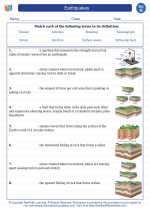Earthquakes -> vascular tissue
Vascular Tissue
Vascular tissue is an essential component of plants, responsible for the transport of water, nutrients, and sugars throughout the plant. There are two main types of vascular tissue: xylem and phloem.
Xylem
Xylem is responsible for transporting water and minerals from the roots to the rest of the plant. It is made up of several types of cells, including tracheids, vessel elements, and parenchyma cells. Tracheids and vessel elements are long, tube-like cells that conduct water, while parenchyma cells provide support and storage.
Phloem
Phloem is responsible for transporting sugars produced through photosynthesis from the leaves to other parts of the plant. It is composed of sieve tube elements, companion cells, phloem fibers, and phloem parenchyma. Sieve tube elements are responsible for the actual transport of sugars, while companion cells provide metabolic support.
Functions of Vascular Tissue
- Transport of water, minerals, and sugars
- Provides structural support for the plant
- Facilitates long-distance communication within the plant
Study Guide
Here are some key points to remember about vascular tissue:
- Vascular tissue consists of xylem and phloem.
- Xylem transports water and minerals, while phloem transports sugars.
- The cells in xylem include tracheids, vessel elements, and parenchyma cells.
- Phloem is composed of sieve tube elements, companion cells, phloem fibers, and phloem parenchyma.
- Functions of vascular tissue include transport, support, and communication within the plant.
[Vascular Tissue] Related Worksheets and Study Guides:
.◂Science Worksheets and Study Guides Eighth Grade. Earthquakes
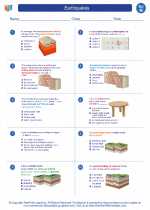
 Worksheet/Answer key
Worksheet/Answer key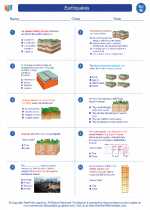
 Worksheet/Answer key
Worksheet/Answer key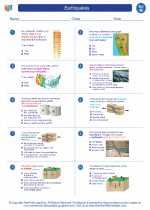
 Vocabulary/Answer key
Vocabulary/Answer key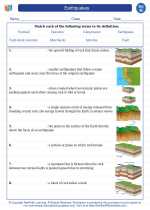
 Vocabulary/Answer key
Vocabulary/Answer key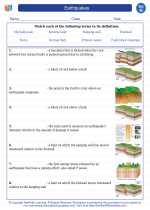
 Vocabulary/Answer key
Vocabulary/Answer key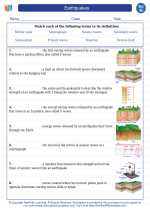
 Vocabulary/Answer key
Vocabulary/Answer key